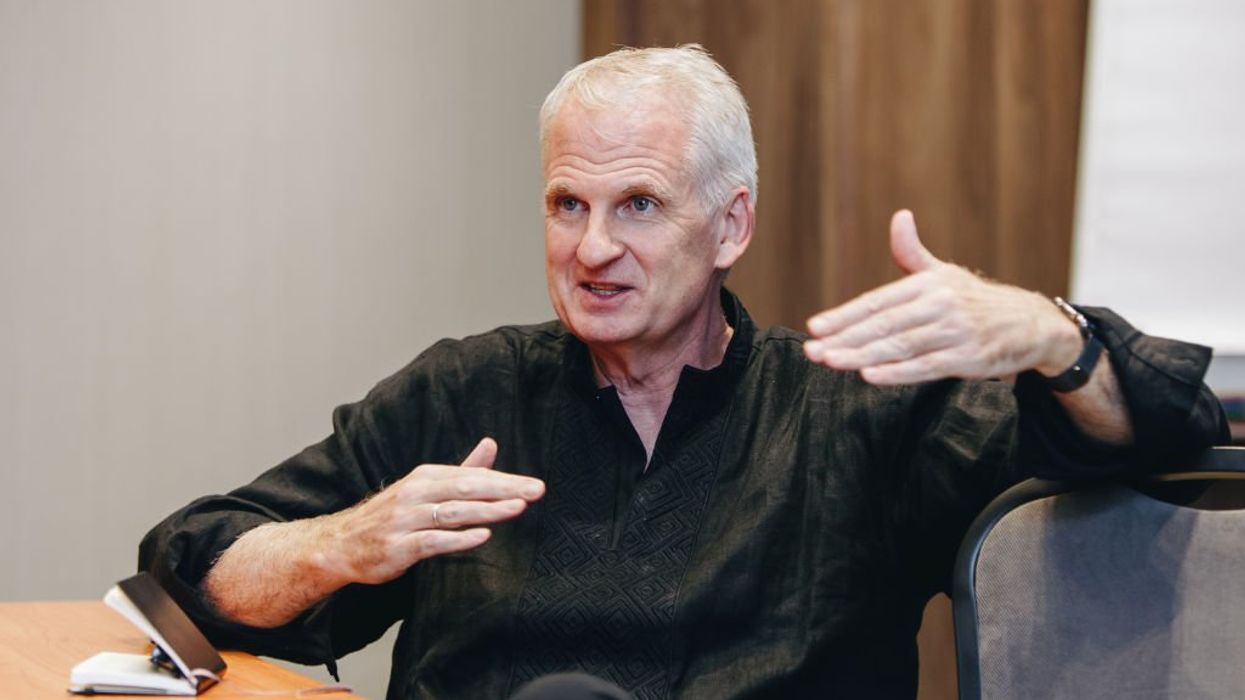
© 2025 Blaze Media LLC. All rights reserved.
Study: Having More Children Doesn't Necessarily Lead to More Long-Term Parental Happiness
October 29, 2014
"May explain why postponing fertility has become so common."
What does having a child do for a parent's state of mind? What does having a whole house full of children do?
While some say it's the greatest vocation in the world, parenting often is portrayed as anything but glamorous in Hollywood movies.
 The study suggests that the happiest of parents are those who have two children and who had them later in life. (Photo credit: Shutterstock)
The study suggests that the happiest of parents are those who have two children and who had them later in life. (Photo credit: Shutterstock)
One study set out to find out just what effect having children had on the happiness levels of their parents.
The research conducted by the London School of Economics and Political Science in collaboration with Western University in Canada found that first and second children increase a parent's happiness, at least temporarily. A third child or more, however, has a negligible effect on happiness.
The happiness spike with the first and second child occurred mostly in pregnancy and around birth, the researchers found while studying British and German parents 18 years after their children were born.
"The fact that parental happiness increases before these children are born suggests that we are capturing broader issues relating to childbearing such as couples forming partnerships and making plans for the future," Mikko Myrskyla, a professor at the school of economics and director of the Max Planck Institute for Demographic Research in Germany, said.
“The arrival of a third child is not associated with an increase in the parents’ happiness, but this is not to suggest they are any less loved than their older siblings," Myrskyla added in a statement. "Instead, this may reflect that the experience of parenthood is less novel and exciting by the time the third child is born or that a larger family puts extra pressure on the parents’ resources. Also, the likelihood of a pregnancy being unplanned may increase with the number of children a woman already has – and this brings its own stresses.”
Women in the study had both a higher gain in happiness and a steeper drop compared to men. A year after the child's birth, the happiness levels in men and women seemed to even out and there was no difference in the two compared to before or after children.
Age did play a factor. Those who became parents at an older age, between 35 and 49 years old, seemed to become happier and stayed happier than younger counterparts. Teen parents saw a decline in happiness that did not increase above the study's baseline after the baby's first birthday. Those in what would be considered prime child-bearing years — 23 to 34 years old — were happier before their first child's birth, but a year or two afterward had happiness levels that declined to the baseline or lower.
“The fact that among older and better-educated parents, well-being increases with childbearing, but the young and less-educated parents have flat or even downward happiness trajectories, may explain why postponing fertility has become so common," Rachel Margolis, an assistant professor from Western University, said.
This study was published in the journal Demography.
(H/T: Reddit)
—
Front page image via Shutterstock.
Want to leave a tip?
We answer to you. Help keep our content free of advertisers and big tech censorship by leaving a tip today.
Want to join the conversation?
Already a subscriber?
more stories
Sign up for the Blaze newsletter
By signing up, you agree to our Privacy Policy and Terms of Use, and agree to receive content that may sometimes include advertisements. You may opt out at any time.
© 2025 Blaze Media LLC. All rights reserved.
Get the stories that matter most delivered directly to your inbox.
By signing up, you agree to our Privacy Policy and Terms of Use, and agree to receive content that may sometimes include advertisements. You may opt out at any time.


